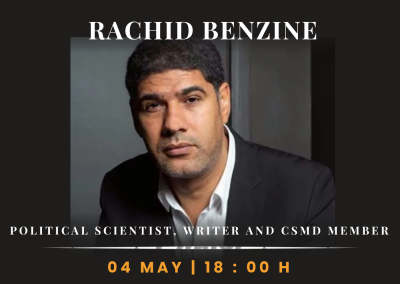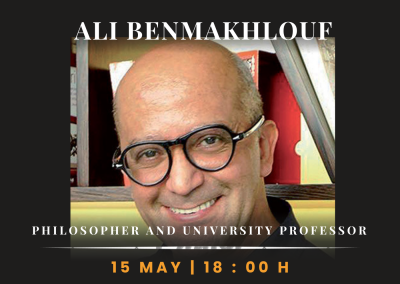On Monday, May 15, 2023, Ali Benmakhlouf, an eminent philosophy professor, delivered an exceptional conference titled “Ibn Khaldoun, a Grammar of Civilization.” This highly anticipated event marked the second time Mr. Benmakhlouf shared his enlightened knowledge in a conference in Agadir. The first conference, organized in December 2022, was dedicated to another great thinker, Maimonides, and the intellectual legacy he left behind.
From the very beginning of his presentation, Mr. Benmakhlouf captured the audience’s attention by recalling key elements of the historical context in which Ibn Khaldoun evolved. Ibn Khaldoun, a renowned philosopher, sociologist, and historian of the 14th century, witnessed the vibrancy of human societies and the civilizational changes that occurred during his time.
By elucidating the fundamental ideas of Ibn Khaldoun’s thought, Mr. Benmakhlouf shed light on the central concept of Umran (العمران), which plays an essential role in understanding civilization according to this great thinker.
The presentation highlighted several concrete examples drawn from Ibn Khaldoun’s writings, thereby illustrating the richness and relevance of his thought for our era. The listeners were fascinated by the profoundness of Ibn Khaldoun’s ideas, which brought new insights into the history and future of civilizations.
After presenting the key concepts of Ibn Khaldoun’s thought, Benmakhlouf also addressed the criticisms and interpretations that have surrounded the philosopher over the centuries. He emphasized the importance of contextualizing Ibn Khaldoun’s ideas within his time while acknowledging their universal value.
Ali Benmakhlouf’s conference on Ibn Khaldoun provided an opportunity for the attendees to delve into the intellect of a visionary thinker and reflect on the implications of his ideas for our contemporary society. Thanks to Mr. Benmakhlouf’s clarity and passion, the listeners left enriched and inspired, carrying with them a deeper understanding of the foundations of civilization and Ibn Khaldoun’s intellectual legacy.



